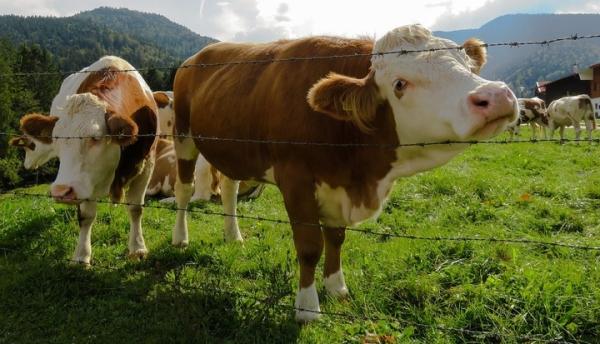Eating Less Meat is Essential to Avoiding Climate Change
- December 31 2016
- 3 min read
Eating Less Meat is Essential to Avoiding Climate Change

When you think of the battle against global climate change, reducing carbon emissions normally comes to mind. From deforestation to burning fossil fuels like coal, oil, and natural gas, there are plenty of human sources we could cut back on to reduce our carbon footprint. However, methane – over a century– is actually 34 times more potent than CO2, but over 20 years, its 84 times more potent.
Researchers Saunois and Jackson with Global Carbon Project are part of a larger team of researchers which track the flows of carbon across the planet – an element found in both carbon dioxide and methane – and publish a global methane report every two years.
Concentrations of this gas are spiking, according to their report published in the journal Environmental Research Letters. Their analysis shows relative stagnation in the early 2000s with methane concentrations in the atmosphere rising only at about .5 parts per billion per year. But in 2014, they spiked by 12.5 parts per billion and in 2015, they spiked by 9.9 parts per billion.
Atmospheric levels of methane, a powerful greenhouse gas, are spiking, scientists report https://t.co/VQaXSEKEsM pic.twitter.com/NPmiSmFoyO
— Post Green (@postgreen) December 12, 2016
With carbon dioxide levels rising at a slower rate, it's methane we're going to have to keep an eye on in terms of global warming.
Reducing Emissions
Domestic oil and gas drilling have attributed to spiking atmospheric methane levels in the past decade. However, new research by the PNAS points to the agricultural sector. Their analysis suggests that reducing meat consumption would not only reduce greenhouse gas emissions but also lower healthcare costs and improve human health.
If you struggle with the idea of switching to a plant-based diet, try reducing your red meat intake instead. Poultry products produce fewer emissions per unit of product than that of red meats. So, next time you're at your favorite restaurant, order a chicken sandwich instead of a burger.
From meat consumption to improvements in livestock feeding practices, it's apparent that global efforts need to be taken in the agriculture sector if we stand any chance at reducing methane levels and winning the fight against climate change.
Gain access to Orders, Tracking, Custom Options and Much More!